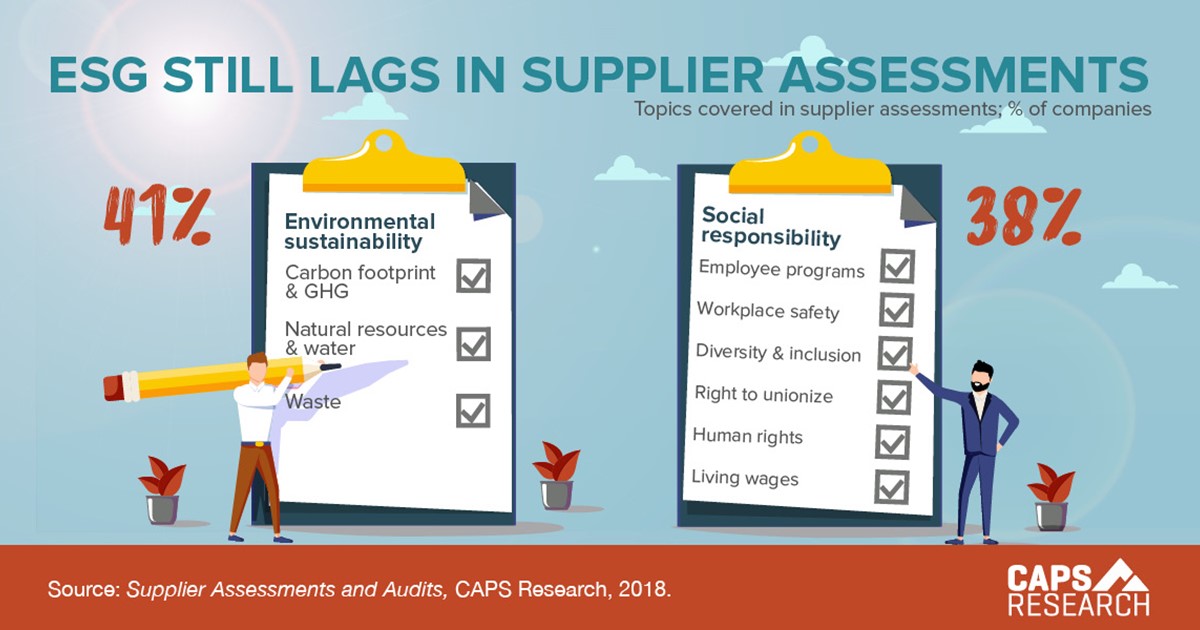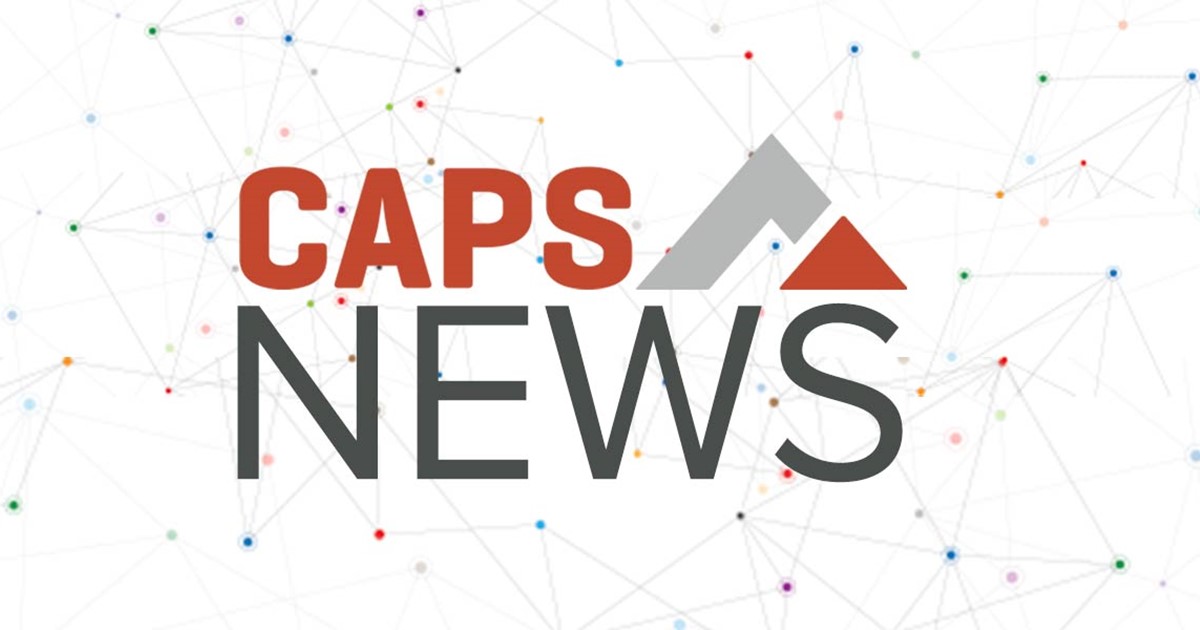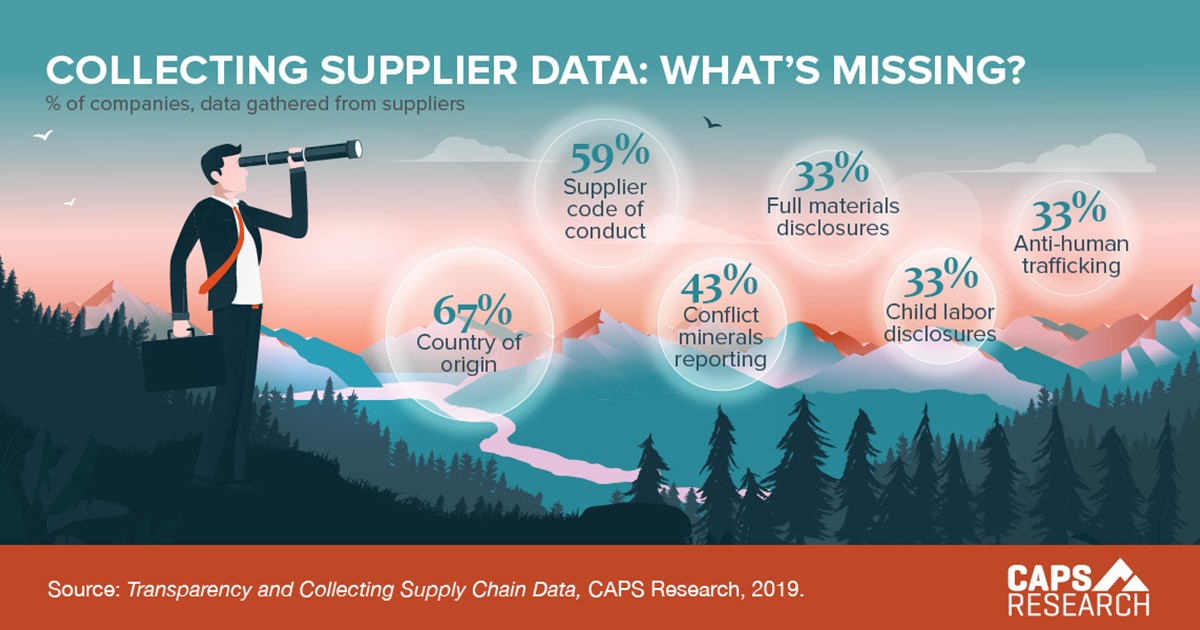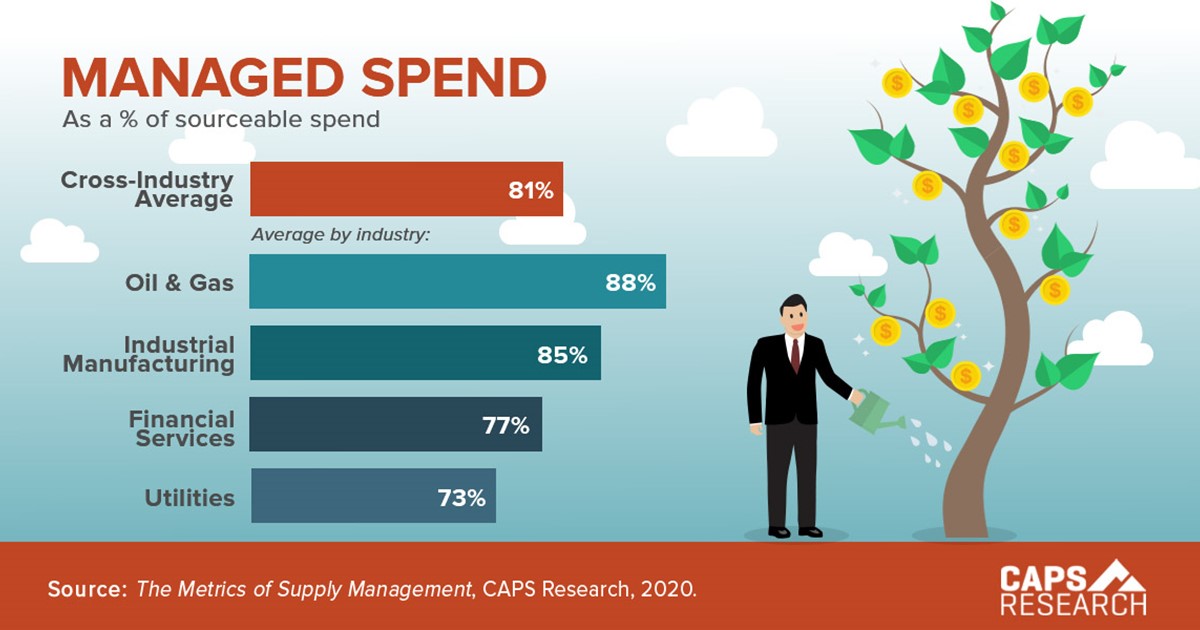While inwardly focused metrics may be “safe” and what is expected of supply management, if the function is going to progress from tactical to strategic, the goal for most supply leaders ultimately should be alignment with stakeholders. Supply management must push beyond its own internal perspective to understand the business and, whenever possible, adopt the metrics that drive the enterprise.
ESG still lags in supplier assessments
When it comes to what questions supply managers are asking in supplier assessments, less than half include environmental, social, and governance (ESG) questions.
CAPS News - 7 April 2021
Best practices for sharing and protecting your data, developing your category management strategy, infrastructure proposals, and more timely SCM news.
Best practices for sharing and protecting data in supply management
In today's connected world, sharing data with suppliers is a given. But not all data, and all suppliers, are created equal. Organizations must assess their data-sharing priorities and connect with suppliers that are able to protect the data accordingly. Effective data security must be a critical element in supplier selection, onboarding, and relationship management.
Collecting Supplier Data
Out of all the data companies collect from suppliers, greenhouse gas (GHG) doesn’t make the list. Nope – it’s not an April Fools’ joke. While it’s encouraging that at least 1/3 of companies gather compliance and human rights information, key environmental data like GHG emissions are missing. Companies need to move beyond basic compliance to validating suppliers’ activities and carbon footprint. What proactive measures is your organization integrating to make a difference?
Strategy development is the foundation of your category management playbook
Category management strategy development can align internal business requirements with the marketplace and suppliers' capabilities by segmenting the organization's spend into discrete groups. It's the foundation of your category management approach, and doing it well delivers significant value to the organization.
CAPS News - 24 March 2021
CAPS dives into sharing data with suppliers, the best practices for an extraordinary customer experience, your category management playbook, and more.
7 steps for creating an extraordinary internal customer experience
The relationships that procurement professionals form with internal customers are critical – they can impact relationships with the company’s external customers, and therefore, the bottom line. While substantial research has been conducted about managing relationships with external stakeholders, much less attention has been paid to managing relationships with procurement’s internal customers.
The challenges, rewards & tensions of sharing data with suppliers
Supply managers face a daunting challenge when it comes to data. Sharing data with suppliers can improve efficiency, flexibility, quality, and new product development. But there are risks to intellectual property, corporate, and personal information, as well as regulatory and legal concerns, and attacks that could severely impair the organization.
Managed Spend
Supply management teams with high levels of managed spend are better able to leverage spend, mitigate supplier risk, and bring more strategic value to the organization.








